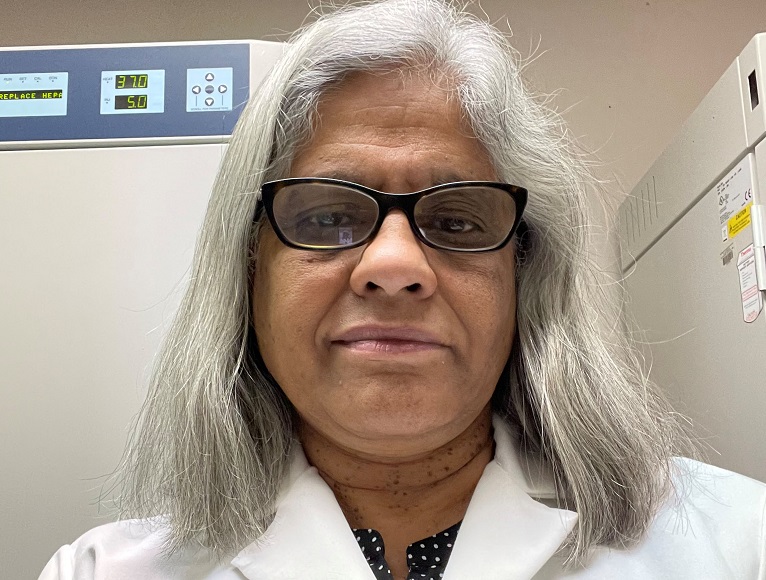The Michigan-based Thomas Foundation has renewed its support of diabetic retinopathy research at the Wayne State University School of Medicine for the 23rd continuous year, this year to investigate how lipids in a sugary environment such as Type 2 diabetes affect the removal of damaged mitochondria, the powerhouse of a cell.

The family-led foundation supports diabetes research after losing a child to complications from the metabolic disorder. She is the only one supported by the foundation for more than 20 years.
“I feel humbled to be continuously supported by a family foundation for over two decades,” said Renu Kowluru, Ph.D., professor and director of Translational Research in the Department of Ophthalmology, Visual and Anatomical Sciences. “This grant is special to me because 23 years ago the support from the Thomas Foundation allowed us to generate preliminary data for one of my R01s from the National Institutes of Health, and that R01 is still currently funded.”
Dr. Kowluru is now principal investigator on four R01 projects funded by the National Eye Institute of the National Institutes of Health. She is also a member of NIH’s National Eye Advisory Council.
Her overall research focuses on understanding the molecular mechanism of the development of diabetic retinopathy, a vision-threatening disease. Her lab is investigating how hyperglycemia damages mitochondrial structural, functional and genomic stability, and the role of epigenetic modifications and long noncoding RNAs in mitochondrial homeostasis. Her team is also investigating the molecular mechanism of the metabolic memory phenomenon associated with the continued progression of diabetic retinopathy after cessation of hyperglycemic insult, and how damaged mitochondria continues to fuel a self-propagating cycle of free radicals.